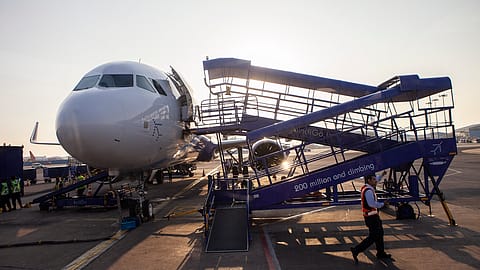Unruly passenger incidents on the rise: IATA
The most common form of incidents in 2022 were non-compliance, verbal abuse and intoxication, says IATA

There was one unruly incident reported for every 568 flights in 2022, up from one per 835 flights in 2021, according to data released by the International Air Transport Association (IATA).
The most common form of incidents in 2022 were non-compliance, verbal abuse and intoxication, the IATA analysis shows. Physical abuse incidents remain very rare, but these had an alarming increase of 61% over 2021, occurring once every 17,200 flights, the report shows.
"The increasing trend of unruly passenger incidents is worrying. Passengers and crew are entitled to a safe and hassle-free experience on board. For that, passengers must comply with crew instructions. While our professional crews are well trained to manage unruly passenger scenarios, it is unacceptable that rules in place for everyone's safety are disobeyed by a small but persistent minority of passengers. There is no excuse for not following the instructions of the crew," says Conrad Clifford, IATA's Deputy Director General.
Although non-compliance incidents initially fell after the mask mandates were removed on most flights, the frequency began to rise again throughout 2022 and ended the year some 37% up on 2021, says IATA. The most common examples of non-compliance were smoking of cigarettes, e-cigarettes, vapes and puff devices in the cabin or lavatories, failure to fasten seatbelts when instructed, exceeding the carry-on baggage allowance or failing to store baggage when required and consumption of own alcohol on board.
"No one wants to stop people having a good time when they go on holiday—but we all have a responsibility to behave with respect for other passengers and the crew. For the sake of the majority, we make no apology for seeking to crack down on the bad behavior of a tiny number of travelers who can make a flight very uncomfortable for everyone else," Clifford says.
IATA called for more states to take the necessary authority to prosecute passengers under Montreal Protocol 2014 (MP14). To date, some 45 nations comprising 33% of international passenger traffic have ratified MP14.
In January, aviation regulator DGCA (Directorate General of Civil Aviation) penalised the Tata group-owned Air India with ₹40 lakh fine for two separate mid-air peeing incidents. The regulator penalised Air India with ₹30 lakh fine and also imposed a fine of ₹3 lakh on the director of its in-flight services for an incident in which a male passenger in an inebriated condition urinated on a woman. The DGCA also suspended the license of the pilot-in-command of the flight concerned for three months.
Recommended Stories
"In the face of rising unruly incident numbers, governments and the industry are taking more serious measures to prevent unruly passenger incidents. States are ratifying MP14 and reviewing enforcement measures, sending a clear message of deterrence by showing that they are ready to prosecute unruly behavior. For the industry's part, there is greater collaboration. For example, as the vast majority of intoxication incidents occur from alcohol consumed prior to the flight, the support of airport bars and restaurants to ensure the responsible consumption of alcohol is particularly important," Clifford adds.